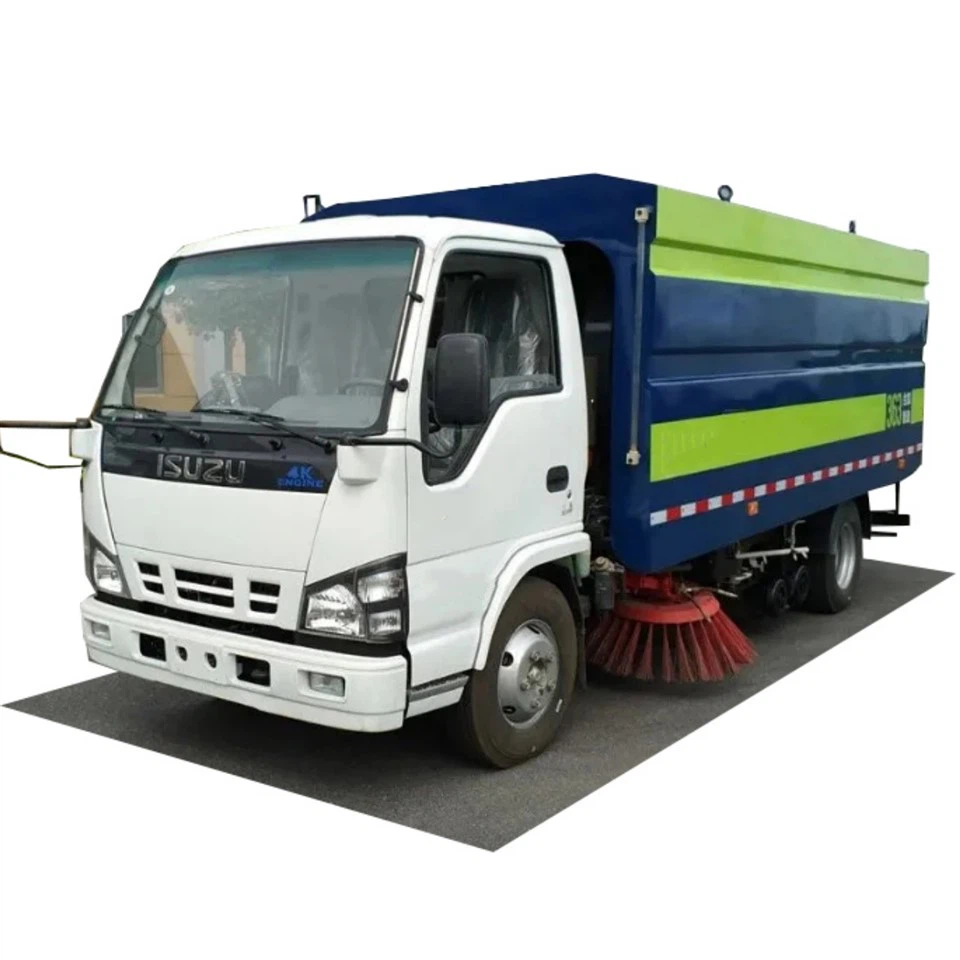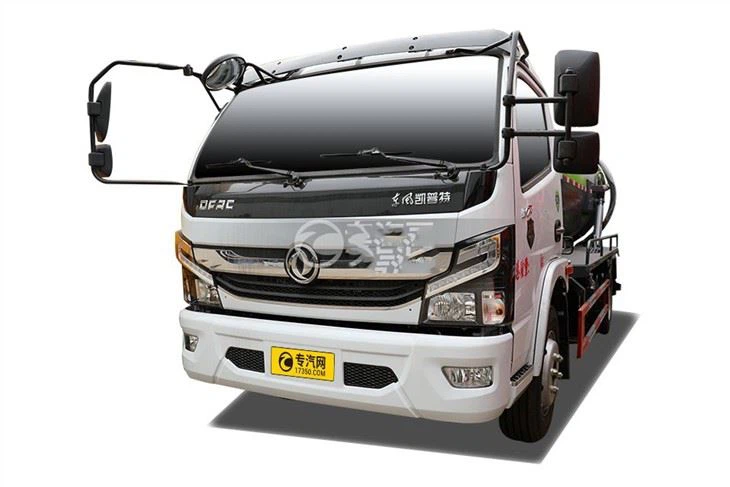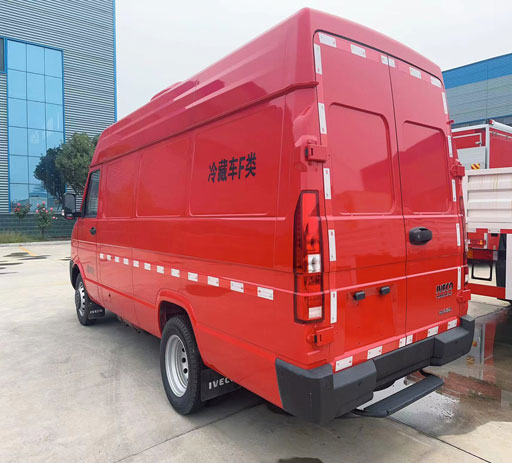Under CDL Trash Trucks: Everything You Need to Know

In the waste management industry, under CDL (Commercial Driver’s License) trash trucks play a pivotal role. These vehicles are essential for handling waste collection in urban and rural settings without the requirement of a full CDL for operation. This article will explore various aspects of under CDL trash trucks, their types, advantages, and practical tips for those interested in this niche in the trucking industry.
Understanding Under CDL Trash Trucks
Under CDL trash trucks are designed for drivers who do not possess a commercial driver’s license, making them accessible for those new to the industry or who possess a standard driver’s license. Typically, these trucks have a gross vehicle weight rating (GVWR) of 26,000 pounds or less, which keeps them below the threshold for requiring a CDL in most states.
Why Choose Under CDL Trash Trucks?
The primary reason for selecting under CDL trash trucks is to simplify the hiring process. Employers can onboard drivers without the immediate need for a CDL, expanding the pool of potential employees. Additionally, these trucks can navigate urban environments that impose weight restrictions on larger vehicles.
Cost-Effective Solution
Operating under CDL trash trucks can also be more cost-effective. Lower insurance costs, reduced maintenance, and the ability to utilize a broader selection of drivers contribute to overall savings for waste management companies.
Types of Under CDL Trash Trucks
Various types of under CDL trash trucks cater to different waste management needs. Understanding these types can help businesses choose the right vehicle for their operations.
1. Side Loaders
Side loaders are designed to collect waste from the side of the truck. Equipped with automated arms, these trucks can pick up residential trash bins, reducing the need for manual handling.
Advantages
- Efficient collection process.
- Reduced labor required.
- Minimized injury risks from heavy lifting.
2. Rear Loaders
Rear loaders are equipped with a tailgate that allows workers to load refuse directly into the back of the vehicle. These trucks are highly versatile and used for various waste types.
Advantages
- Ideal for high-density areas.
- Allows for manual loading for larger or bulky items.
3. Front Loaders
Front loaders are designed to pick up large commercial dumpsters. They are perfect for businesses that generate significant waste volumes.
Advantages
- Efficient for commercial waste collection.
- Designed to handle large quantities of waste.

The Benefits of Using Under CDL Trash Trucks
Under CDL trash trucks offer numerous benefits for both operators and business owners. Here are some key advantages:
Easy Licensing Requirements
Since under CDL vehicles do not require a commercial driver’s license, the process of getting qualified drivers is simpler and less time-consuming. This allows companies to fill positions promptly, ensuring efficient operations.
Operational Flexibility

These trucks can operate in areas with weight limits and can access tight spaces that larger vehicles may find challenging to reach. This operational flexibility enhances route efficiency.
Choosing the Right Under CDL Trash Truck
Choosing the right under CDL trash truck is crucial for optimizing your waste collection efforts. Here are some factors to consider:
1. Weight Capacity
Assessing the weight capacity of the truck is vital. Ensure the model you consider aligns with the expected waste load in your area.
2. Type of Waste Collected
Different trucks are suited for different types of waste. Choose a design that meets your collection requirements, whether residential, commercial, or industrial waste.
3. Route Planning Capabilities
A good waste management operation maximizes routes for efficiency. Ensure that the truck you choose is compatible with detailed route planning to minimize travel time and fuel consumption.
Operational Tips for Under CDL Trash Trucks
To ensure efficient and effective operations with under CDL trash trucks, consider the following tips:
Regular Maintenance
Establish a maintenance schedule to keep vehicles in optimal condition. Regular inspections, oil changes, and tire rotations help avoid costly repairs and downtime.
Driver Training
Even though a CDL is not required, proper driver training ensures safety and efficiency. Training sessions should cover vehicle operation, safety protocols, and waste handling procedures.
Effective Route Management
Implement route management software to assist drivers in navigating their routes efficiently, thereby saving fuel and time. Tracking devices can also monitor performance and optimize routes dynamically.
Cost Considerations
While under CDL trash trucks can be more affordable than full-sized CDL-required trucks, several costs must still be considered:
1. Purchase Price
Evaluate various models and determine the best fit for your budget. Look at both new and used options to find the most cost-effective solution.
2. Maintenance Costs
Budget for regular maintenance, repairs, and potential upgrades over the vehicle’s lifecycle.
3. Fuel Efficiency
Fuel costs can significantly affect overall operational expenses. Choose models that prioritize fuel efficiency.
Environmental Impact of Under CDL Trash Trucks
As environmental concerns continue to rise, it’s essential to consider the ecological impact of any vehicle used in waste management. Under CDL trash trucks can contribute positively through:
1. Lower Emissions
Because they are typically smaller, under CDL trash trucks generally have lower emissions than their larger counterparts. This can be beneficial for urban areas with strict emission regulations.
2. Efficient Waste Collection
Efficient waste collection can lead to less littering and improved community cleanliness, further enhancing the environment.

Future Trends in Under CDL Trash Trucks
The waste management industry is constantly evolving, and under CDL trash trucks are no exception. Here are some future trends to watch:
1. Electric Vehicles
With the rise of electric vehicle technologies, many manufacturers are beginning to offer electric under CDL trash trucks. These vehicles not only reduce emissions but also can provide significant operational cost savings.
2. Smart Technology Integration
Increased integration of smart technologies allows for real-time tracking, automated route optimization, and improved safety measures for driver and pedestrian safety.
FAQ Section
1. Do I need a CDL to drive an under CDL trash truck?
No, under CDL trash trucks are specifically designed to be operated without a Commercial Driver’s License as long as their weight is under 26,000 pounds.
2. What is the average cost of an under CDL trash truck?
The cost of an under CDL trash truck can vary widely based on specifications, brand, and condition. Generally, prices range from $30,000 to $100,000 for new models.
3. Are there specific regulations for operating under CDL trucks?
Yes, while a CDL is not required, operators must still adhere to state and local regulations regarding waste collection and vehicle operations.
4. Can under CDL trash trucks operate in urban areas?
Yes, under CDL trash trucks are well-suited for urban operations where maneuverability and weight restrictions can be a concern for larger vehicles.
5. What types of waste can under CDL trash trucks collect?
They can collect various types of waste, including residential trash, commercial waste, and specific recyclable materials, depending on the truck’s configuration.
6. How do I choose the right under CDL trash truck for my business?
Consider factors like weight capacity, type of waste collection needed, budget, and operational requirements when selecting the best under CDL trash truck for your business.
